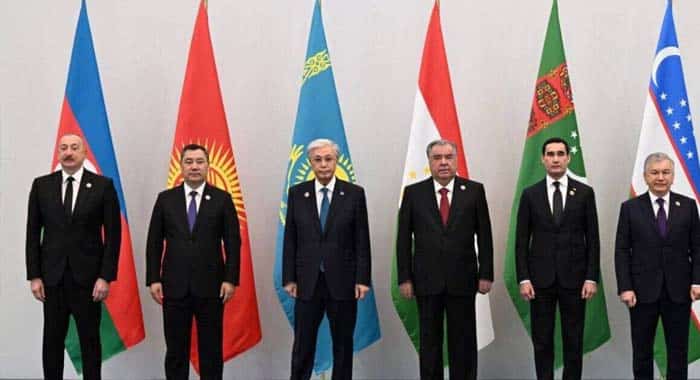Central Asian leaders emphasized the urgent need to strengthen regional security and stability, citing growing risks emanating from Taliban-controlled Afghanistan, even as they called for cautious engagement to support regional connectivity and trade.
The statement came during the seventh Consultative Meeting of the Heads of State of Central Asia, hosted by Uzbek President Shavkat Mirziyoyev in Tashkent. The summit brought together the leaders of Uzbekistan, Kazakhstan, Kyrgyzstan, Tajikistan, and Turkmenistan, along with representatives of the United Nations. Afghanistan was notably absent from the meeting, reflecting the lack of formal recognition of the Taliban regime by any Central Asian nation.
“Enhancing regional security, ensuring coordinated responses to shared risks, and cautiously supporting Afghanistan’s integration into regional processes must be a core priority,” Mirziyoyev said, framing the Taliban-ruled country as a persistent security challenge.
For over two decades, Central Asian nations have viewed Afghanistan primarily through a security lens, concerned about militancy, drug trafficking, illegal migration, and cross-border arms flows. The summit reiterated that these threats remain acute under Taliban rule, with extremist activity, narcotics smuggling, and illicit arms transfers continuing unabated. Tajikistan in particular has repeatedly highlighted ongoing border threats, underscoring the volatility of the Afghan situation.
Despite these concerns, the summit emphasized Afghanistan’s conditional inclusion in regional infrastructure, trade, and water projects essential for long-term economic and strategic goals. Key initiatives highlighted included the Afghan-Trans Corridor to connect Central Asia with South Asian markets, joint management of the Amu Darya River Basin, and broader regional connectivity projects such as energy transmission lines and fiber optic networks. The leaders also endorsed 2026–2036 as the “Decade of Practical Water Use in Central Asia,” explicitly calling for Taliban Afghanistan’s involvement, even as caution was repeatedly emphasized.
Mirziyoyev framed the initiatives as part of building a “New Central Asia” based on unity, shared prosperity, and regional self-reliance. Uzbekistan, a long-time backchannel interlocutor with the Taliban, has pushed for Afghan transit routes to diversify the region’s trade away from reliance on Russia and China, but leaders stressed that economic cooperation must not overshadow the pressing security threats emanating from Afghanistan.
The summit communiqué highlighted the difficult balance Central Asian states must strike: engaging Afghanistan to preserve regional development and connectivity, while remaining vigilant against ongoing Taliban-enabled threats that continue to destabilize the region.
The Tashkent gathering signals a pragmatic yet wary approach by Central Asian powers, separating political recognition from economic and security cooperation, while underscoring the Taliban’s failure to deliver stability or curb threats along its borders.





